Sensors already equip a range of tools to enhance monitoring capacity for conservation. Some of the higher bandwidth technologies, like camera traps and acoustic monitoring systems, have been essential elements of the conservation toolkit for decades, and thus have enough users that we've created dedicated WILDLABS groups to address them. But a whole range of lower bandwidth sensors beyond these core technologies are being increasingly integrated into conservation monitoring systems, and offer rich new insights into the wildlife and ecosystems we're all working to protect. As with many technologies, cost and access have historically been challenges to the adoption of new sensors, but with low-cost and open-source solutions on the rise, we're excited to see what the future of this space holds.
Getting Started with Sensors:
- Watch Shah Selbe's Tech Tutors episode on scaling FieldKit, an open-source conservation sensor toolbox, from a project to a successful conservation tech product.
- Check out our Virtual Meetup about Low-Cost, Open-Source Solutions in conservation tech, including a talk by Alasdair Davies on the Arribada Initiative's work with thermal sensors in early warning systems.
- For a more in-depth introduction, watch the first video in our datalogger mini-series: Freaklabs: How do I get started with Arduino?
In this group, you'll meet others who are using and innovating diverse sensors in their work, discuss ways to make sensors more effective & accessible for conservationists, learn about what sensors are already helping us accomplish in the field, and have the opportunity to ask and answer questions. Join this group to get started!
Header image: Emma Vogel, University of Tromsø
Max Planck Institute of Animal Behavior
Behavioral Ecologist
- 1 Resources
- 1 Discussions
- 14 Groups
Wildlife Drones
Wildlife Drones has developed the world’s most innovative radio animal-tracking system using drones so you can track your radio-tagged animals like never before.
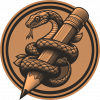

- 18 Resources
- 8 Discussions
- 32 Groups
International Union for the Conservation of Nature (IUCN)
Key Biodiversity Areas Programme Officer, IUCN
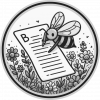
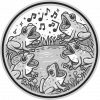

- 0 Resources
- 89 Discussions
- 8 Groups
- @raquelgo
- | (she/her/hers)
- 0 Resources
- 0 Discussions
- 17 Groups
American Museum of Natural History
- 1 Resources
- 8 Discussions
- 10 Groups
- @Andrew_Hill
- | He/Him
Open Acoustic Devices
I am co-founder of Open Acoustic Devices, the creators of AudioMoth and HydroMoth. My background is Electronic Engineering and Computer Science.
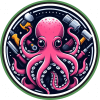

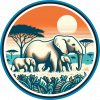
- 0 Resources
- 10 Discussions
- 2 Groups
- 0 Resources
- 0 Discussions
- 17 Groups
PhD Candidate at University College London. Research and develop wireless sensor networks for biodiversity monitoring. Currently working on a software package for AI bioacoustics classifiers on edge device.
- 0 Resources
- 2 Discussions
- 9 Groups
- 0 Resources
- 0 Discussions
- 1 Groups
Saint Louis Zoo
- 0 Resources
- 0 Discussions
- 13 Groups
- @alex_rogers
- | He/him/his
University of Oxford
I am a Professor of Computer Science at the University of Oxford where I work on developing novel low-cost conservation technology (including AudioMoth and SnapperGPS).


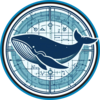
- 0 Resources
- 21 Discussions
- 3 Groups
- @PshemekZ
- | he/him/his
IT + nature
- 0 Resources
- 7 Discussions
- 8 Groups
a technology-led solution to understanding the honeybees of the wasp world
8 December 2022
"We develop the use of benthic species as animal oceanographers by combining archival (depth, temperature) data from animal-borne tags, passive acoustic telemetry & citizen-science mark-recapture records for the...
10 October 2022
Apply now for $2,500–$15,000 USD grants for early-stage ideas or projects that address global challenges.
4 October 2022
The device could help scientists explore unknown regions of the ocean, track pollution, or monitor the effects of climate change.
26 September 2022
This paper released by the World Economic Forum and the SPACES coalition shows how businesses can embrace the use of spatial intelligence for action on nature and climate. How can we make sure businesses apply the...
23 September 2022
This role will be employed under Osa Conservation's Movement Ecology Program. Broadly, the project aims to develop and use novel animal tracking technology to increase our understanding of the movement ecology of...
22 September 2022
Careers
The Senior Conservation Technology Specialist will be responsible for providing technical advice and capacity development to GWP project teams on conservation technology, distilling challenges and lessons from project...
22 September 2022
Boost cons tech capacity at an international NGO! Fauna & Flora International is offering a paid three-month internship to consolidate and share best practices for the application of emerging hardware and software...
26 August 2022
Article
An update on Ceres Tags products that are being used in conservation
22 August 2022
Are you interested in joining a team dedicated to changing how conservation is conducted around the world by developing new genetic technologies for conservation, and being part of the new wave of scientists paving a...
15 August 2022
The Marine Robotics and Remote Sensing (MaRRS) Lab at Duke University seeks a highly motivated UAS pilot and geospatial analyst to support the ongoing development of new and existing research and conservation programs,...
10 August 2022
The Marine Robotics and Remote Sensing (MaRRS) Lab at Duke University seeks a highly motivated postdoctoral researcher to support the ongoing development of new and existing research and conservation programs, both...
10 August 2022
November 2023
event
16 Products
Recently updated products
117 Products
1 R&D Projects
81 Organisations
Recently updated products
Recently updated R&D Projects
Recently updated organisations
| Description | Activity | Replies | Groups | Updated |
|---|---|---|---|---|
| Thanks for sharing this event, Jenny! Looks really interesting, hope to see you there. |
|
Sensors | 8 years 11 months ago | |
| Hi John and Adam, I've been hearing a lot about Oxford Nanopore Technologies and MinION over the last few months, and while it sounds fanastic, it's been... |
|
Sensors | 8 years 11 months ago | |
| Sensory: BBC Wildlife Director John Downer & the technology of 'spy-cam' filmmaking from Getty Images on Vimeo.Small Cameras, Big... |
|
Sensors | 9 years ago | |
| Hello all, I've been reading a lot about advancements in using thermal imaging technology for wildlife monitoring. I know... |
|
Sensors | 9 years ago | |
| Latest news about this project was picked up by the BBC world service for a short interview http://www.bbc.co.uk/programmes/p03nwl8g You can also read more here: http://... |
|
Sensors | 9 years 1 month ago | |
| Hi everyone, I'm working on a citizen science project forcused on using aquaculture for conservation and ecological... |
|
Sensors | 9 years 2 months ago | |
| That's great Jason. I think your approach can be very successful. I'm a little bit familiar with Wild Book through my contacts at IBEIS, who I believe you... |
|
Sensors | 9 years 2 months ago | |
| I was amused to read about a flock of pigeons just released in London to tackle pollution. The flock was equipped with pollution... |
|
Sensors | 9 years 2 months ago |
Text Messages from Teenage Gannets
25 April 2016 12:00am
Eggs Eggs and more Eggs
2 March 2016 1:05pm
Underwater sensors
18 March 2016 12:39am
Could Big Data Have Saved Cecil the Lion?
4 January 2016 12:07pm
12 February 2016 7:16pm
It's very interesting what you say about the strength of a name. I do think that anthropomorphism can be a good thing in the case of conservation. By giving Cecil a name and a life story (incidentally a very cosy British name, which is interesting in itself), it brings the issue into emotional focus. We are attracted to characters and stories, not data. The plight of a named lion strikes a stronger chord than the numbing statistic of 600 "un-named" lions dying every year.
So do we care more about nature if we make anthropomorphise it? I think yes, as it creates a relatable personal connection with our own lives.
I'd like to get in touch with you next week as this is an area I am very interested in exploring and I hope I can be of help. Paul
14 March 2016 4:37pm
We're just starting to look a lot at Storytelling in Wildbook (http://www.wildbook.org).
This is what a data profile looks like in Wildbook:
http://www.whaleshark.org/individuals.jsp?number=A-001
While we allow for basic anthropomorphism via nicknaming, it's still a very data centric view of what a combined group of reserchers knows about the animal.
We have experimented with social media profiles which interestingly have an analogous data schema as mark-recapture:
http://fb.wildme.org/wildme/public/profile/WS-A-001
But we want to go ever further with storytelling mediums (e.g., story maps?) that can be automated from scientific data input, especially where cit sci data and reserch data can be reliably mixed.
So in addition to a name, we want to build a relationship through a portrayal of its life history and even potentially a view of the social network of the animal participates in (if such data can be shared safely.).
16 March 2016 7:22am
That's great Jason. I think your approach can be very successful. I'm a little bit familiar with Wild Book through my contacts at IBEIS, who I believe you work with quite closely. I'd love to see how the work we are doing at Internet of Elephants can incorporate whale shark data. I'll message you separately to discuss.
An Internet of pigeons?
14 March 2016 4:16pm
Ecotech Grants from the Captain Planet Foundation
18 February 2016 12:00am
Bringing Conservation Technology to Life
17 February 2016 12:00am
Wildlife Crime Tech Challenge: Winners Announced!
22 January 2016 12:00am
Deep Coral Reef Exploration and Discovery: Two-way Technological Flow
24 December 2015 12:00am
Cheap Space, DIY Imaging and Big Data
21 December 2015 12:00am
The Impact of the Internet of Things
10 December 2015 12:00am
The Social Lives of Conservation Technologies and Why They Matter
2 November 2015 12:00am



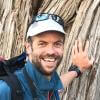

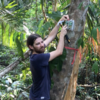

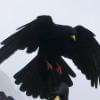
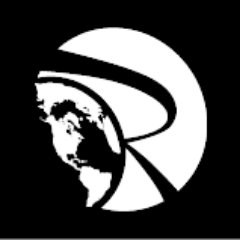
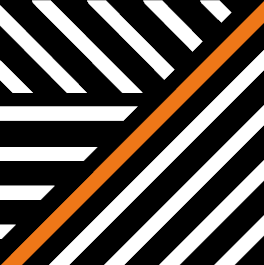

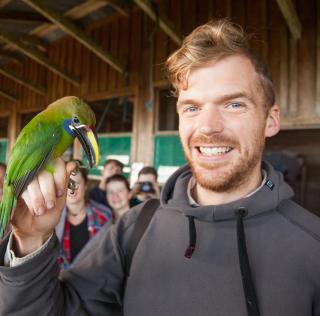
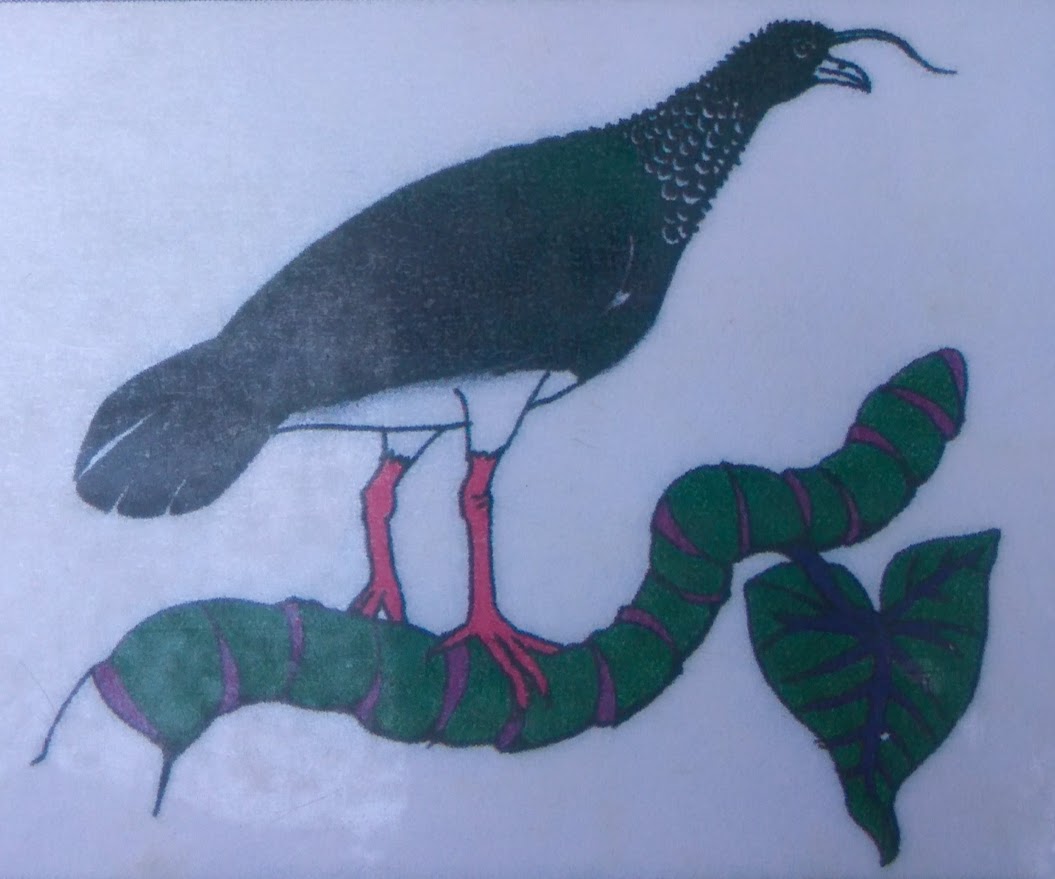


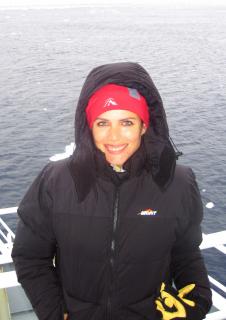

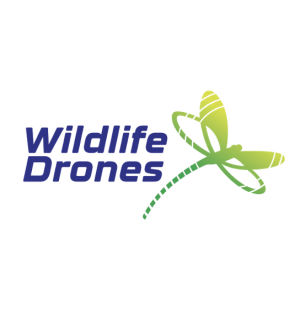

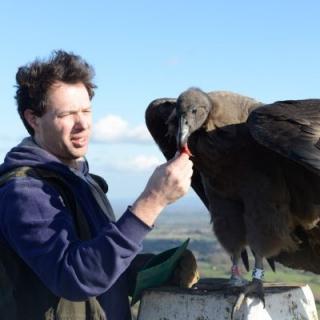


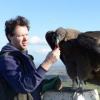

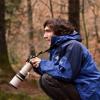

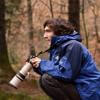

24 March 2016 4:42pm
Latest news about this project was picked up by the BBC world service for a short interview
http://www.bbc.co.uk/programmes/p03nwl8g
You can also read more here:
http://spectrum.ieee.org/geek-life/hands-on/build-an-electronic-vulture-egg